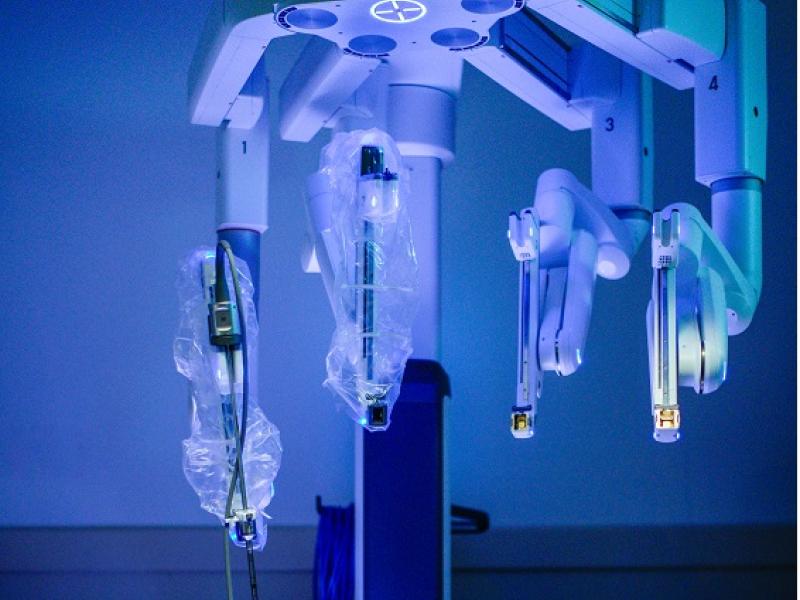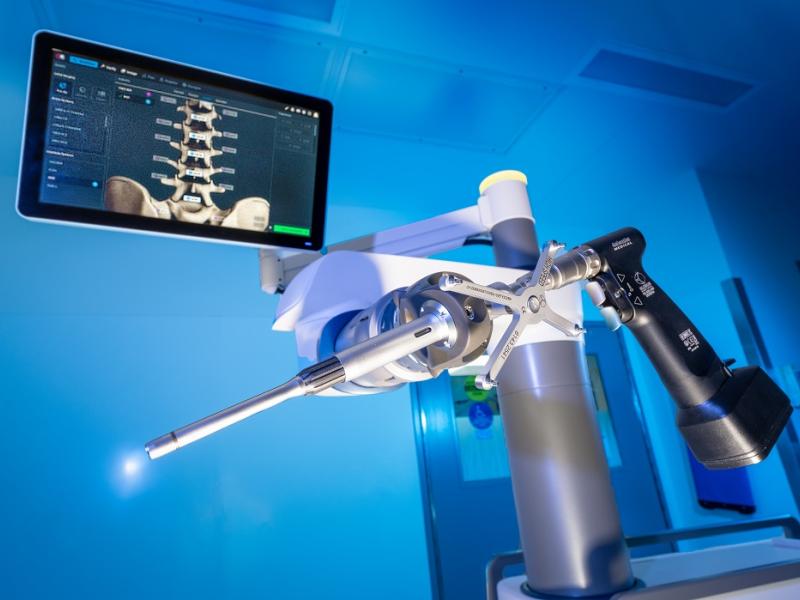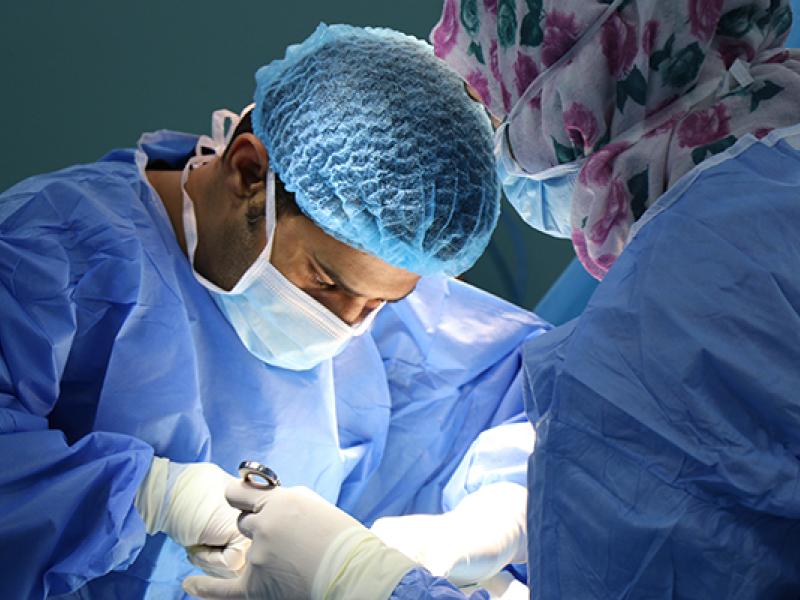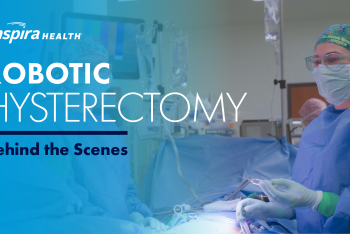Understanding the most common surgeries can help prepare patients for potential procedures. Knowing...
Read More
Inspira’s specially-trained surgeons perform dozens of minimally invasive procedures daily. Using techniques requiring smaller incisions and less impact on healthy tissue helps patients heal and recover quickly to return to their daily lives.
Surgeons at Inspira use minimally invasive surgical techniques to minimize trauma and enhance patient recovery. Unlike traditional open surgeries, minimally invasive surgeries use small incisions, often less than an inch, through which specialized instruments and a tiny camera are inserted.
The benefits of this type of surgery extend beyond cosmetic advantages. Patients experience less postoperative pain, reduced scarring and shorter hospital stays than traditional surgery. The recovery period is generally quicker, allowing individuals to return to daily activities sooner.
Minimally invasive surgery covers various medical disciplines, including gynecology, orthopedics and gastroenterology. Common procedures include laparoscopic surgeries, arthroscopy and endoscopic interventions.
Minimally invasive surgery uses advanced techniques to perform procedures with smaller incisions than traditional open surgery. In this approach, surgeons employ specialized instruments and often a camera-equipped laparoscope, a thin tube with a light source, to visualize and operate inside the body.
This method reduces the need for large incisions, lowering the impact on surrounding tissues and minimizing blood loss. The laparoscope provides real-time high-definition visuals of the surgical site, allowing surgeons to navigate and perform intricate procedures precisely. This visual guidance enhances the surgeon's accuracy, promoting safer interventions.

This approach involves making small incisions where a surgeon inserts a thin, flexible tube with a camera (laparoscope) and other specialized instruments. The surgeon directly manipulates the instruments to perform the surgery. Laparoscopic surgery is widely used in procedures such as gallbladder removal, appendectomy and hernia repair.

Robotic-assisted surgery involves using a robotic system controlled by the surgeon from a console. The system translates the surgeon's hand movements into precise movements of robotic arms, which hold the surgical instruments. Common robotic-assisted surgeries include prostatectomy, hysterectomy and specific cardiac procedures.

Apart from laparoscopic and robotic-assisted surgery, there are other minimally invasive techniques. For example, endoscopic surgery involves using specialized instruments through natural body openings or small incisions and arthroscopic surgery is used for joint procedures.
Before surgery, you will undergo a comprehensive pre-operative process, which includes consultations with the surgical team to discuss the procedure, potential risks and expected outcomes, as well as preoperative testing, such as blood work and imaging studies. You will also receive detailed instructions on fasting requirements, medications and lifestyle adjustments leading up to the day of the surgery.
You can expect a different postoperative experience after the procedure than traditional open surgeries. The recovery process is often shorter and, in some cases, you may be discharged on the same day. Pain management is critical to postoperative care, and your Inspira care team will advise you on appropriate pain medications and strategies to minimize discomfort. The small incisions in minimally invasive surgery contribute to reduced scarring, and you will be advised on proper wound care to promote optimal healing.
Based on the surgery performed, you can anticipate a phased return to normal activities. You may be able to resume light activities within days and gradually introduce more strenuous tasks and exercise over a few weeks. Your care team will schedule postoperative follow-up appointments to monitor progress, address concerns and ensure a smooth recovery.
Minimally invasive surgery offers several advantages, including smaller incisions, reduced blood loss, faster recovery times and less postoperative pain. Patients often experience shorter hospital stays, decreased risk of infection and improved cosmetic outcomes compared to open surgery. There is also typically less scarring and a quicker return to normal activities.
While minimally invasive surgery is preferred for many patients, only some are candidates. Factors such as the patient's overall health, the complexity of the procedure and the surgeon's expertise play a role in determining candidacy. Some patients with certain medical conditions or extensive prior surgeries may require traditional open surgery.
Surgeons use minimally invasive techniques across various medical specialties. Common procedures include laparoscopic surgeries for gallbladder removal, appendectomy and hernia repair, as well as arthroscopic procedures for joint issues. Gynecological surgeries, such as hysterectomy, and certain cardiac and urological procedures can also be performed using minimally invasive approaches.
No, not all minimally invasive surgeries involve the use of robotic technology. Minimally invasive surgery is a broad term that encompasses various techniques, and robotic-assisted surgery is just one subset of these approaches. The two main minimally invasive types are laparoscopic and robotic-assisted surgery.

Understanding the most common surgeries can help prepare patients for potential procedures. Knowing...
Read More
Amanda Mirmanesh, D.O., is an OB/GYN at Inspira Medical Center Vineland. Follow her as she arrives...
Read More
Preparing for surgery can feel overwhelming, but there are ways to minimize your anxiety and focus...
Read More
The material set forth in this site in no way seeks to diagnose or treat illness or to serve as a substitute for professional medical care. Please speak with your health care provider if you have a health concern or if you are considering adopting any exercise program or dietary guidelines. For permission to reprint any portion of this website or to be removed from a notification list, please contact us at (856) 537-6772